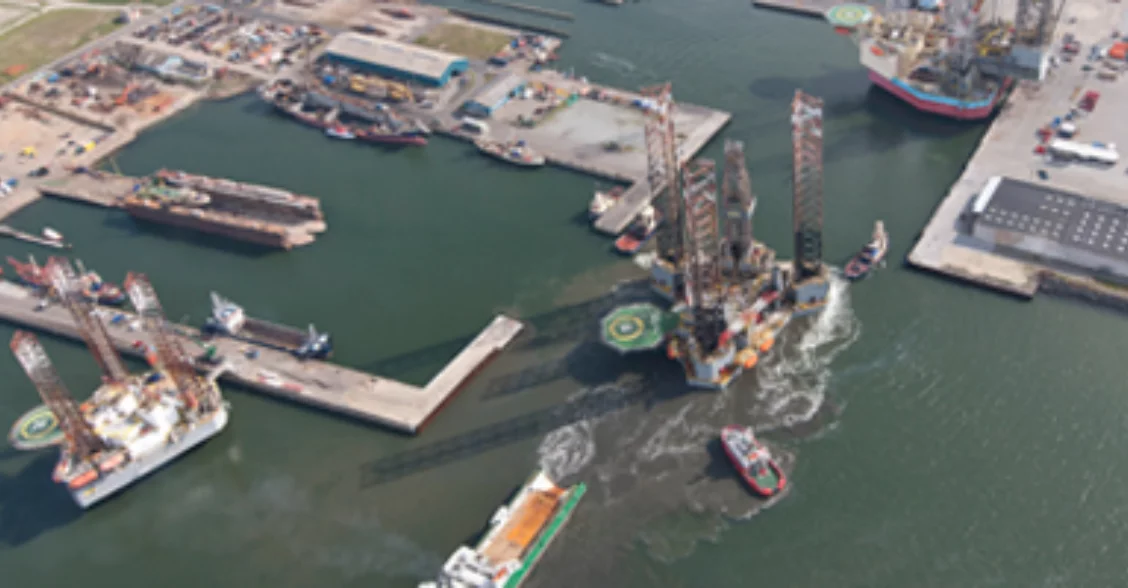The considerable interest shown in the seventh licensing round for the North Sea proves that Denmark's oil and gas fields are attractive for investors – despite threats of the opposite. This is the message coming from the Danish Climate Minister, Rasmus Helveg Petersen (Social Liberal Party).
By the time the deadline for applications for permission to look for and extract oil and gas in the North Sea expired in Autumn 2014, the Danish Energy Authority had received 25 applications. This seventh licensing round of its kind in the North Sea attracted a record-high number of applications, in spite of the changed tax structures introduced by the Danish government last year in connection with its so-called "service check" of the North Sea Agreement.
The oil companies hoping for a share of the activities in the Danish fields include a number of international heavyweights, several of them new applicants for licences in the Danish part of the North Sea. Read below to learn more about what the Danish Minister for Climate, Energy and Building, Rasmus Helveg Petersen, thinks about the licensing round and about the future of the Danish offshore industry.
How do you explain the considerable interest in the seventh North Sea licensing round?
“The interest indicates that what we did with the North Sea Agreement was completely fair. We put all North Sea operators on an equal footing, ensuring that they will all be paying the same tax rate as the one big North Sea operator. This is only fair, and we have said the whole time that as long as the tax terms are fair, people will invest accordingly. And this has turned out to be true.”
Today's oil industry is under pressure from falling oil prices. How do you expect this to affect the outcome of the licensing round?
“I don't think it will have very much of an impact. The falling oil prices are real enough, but the long-term market is trending upwards. When you make investments like these, you don't look at the return generated in the first few years. These are long-term investments, meaning that long-term prospects are more important than current oil prices.”
How do you see the future for the Danish oil and gas sector in general?
“We are in the process of preparing a strategy for oil and gas in the North Sea in close cooperation with the industry. We are trying to investigate the need for new North Sea infrastructure that will ensure that new discoveries can be optimally exploited. We are also looking into the possibility of increasing extraction from established fields. And about a month ago, a new research centre opened at the Technical University of Denmark that will focus on finding technical solutions to getting more oil out of the wells. The reason why we are investing in research and development is that we want to continue to expand and improve the extraction from established fields. I hope and believe that it's possible to maintain production in the North Sea for a long time to come.”
How long are we talking about?
“Twenty years or more. Our plan is to become fossil-free by 2050, but I would definitely hope that the last litre of oil poured into a car in 2049 comes from the North Sea.”
Do you have any messages for the industry?
“We definitely need to continue our transition to green energy. If you are thinking about which way the market will go, I can only say that I'm convinced that green solutions will be in high demand. This will also be the case in our neighbouring countries. So I wouldn't be afraid to base my decisions on an up-trending market. As regards fossil fuels, the oil industry will see strong short-term and medium-term growth with prospects of substantial revenues. So I would say that offshore, whether you go green or black, is a safe bet both ten and twenty years ahead.”
Facts: Seventh licensing round
The following companies have applied for a licence to explore and extract oil and gas in the North Sea
- A.P. Møller – Mærsk A/S
- Ardent Oil Ltd.
- Dana Petroleum Denmark B.V.
- Danoil Exploration A/S
- DONG E&P A/S
- Dyas B.V.
- Edison International S.p.A.
- Hansa Hydrocarbons Limited
- Hess Denmark ApS
- Mærsk Olie & Gas A/S
- Noreco Oil Denmark A/S
- PA Resources UK Limited
- RWE Dea AG
- Shell Olie & Gasudvinding B.V. (Netherlands), Danish branch
- Wintershall Noordzee B.V.
The Danish Energy Authority is currently evaluating the applications. The licences are expected to be awarded in early 2015.
Go to overview

